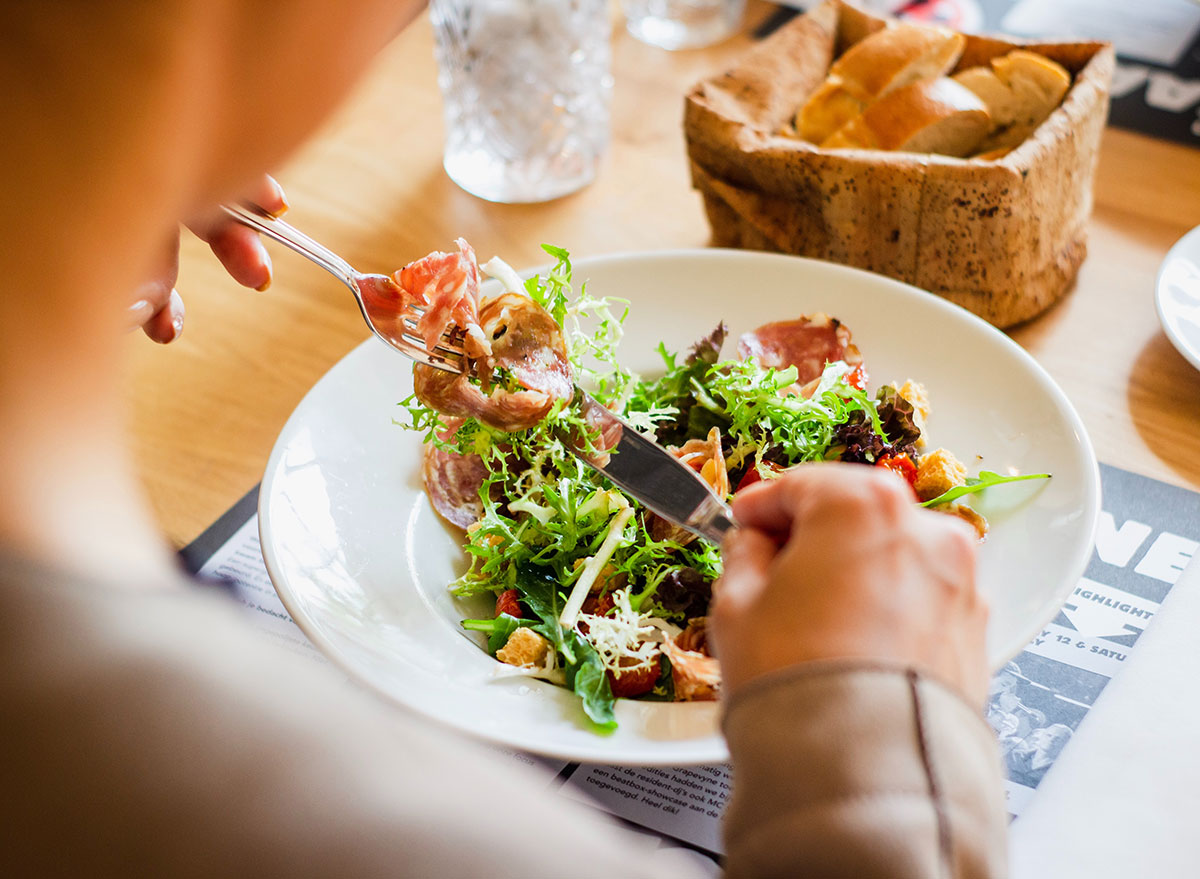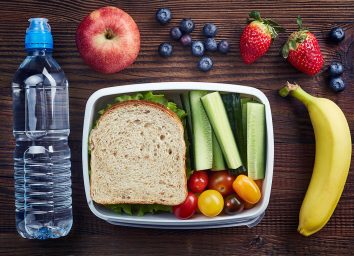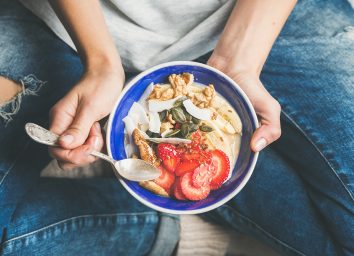Ways Intuitive Eating Can Help You Lose Weight, Say Dietitians
To say that Intuitive Eating is a way to lose weight is a bit of an oxymoron. This eating practice originally comes from the book Intuitive Eating: A Revolutionary Program that Works by Elyse Resch and Evelyn Tribole, and it encourages each person to focus less on dieting and focus more on their body's hunger and fullness signals. It requires complete honesty of your body's needs around when you're actually hungry to eat and when you are not. The program was written to be a solution in helping chronic dieters free themselves from restrictive eating practices and learn how to actually nourish their bodies by making peace with food.
So can someone really lose weight while practicing Intuitive Eating? Many dietitians point out how intuitively eating can help create healthier relationships around food that are free of emotions—which tends to be a large contributor to weight gain. Multiple studies have shown how turning to food as an emotional comfort can lead to weight gain over time. By eliminating this type of emotional dependence and making peace with food, it's easier to properly nourish your body. Intuitive eating helps you to focus on your hunger and fullness, instead of letting your emotions control your eating habits.
Here's what these dietitians had to say about Intuitive Eating practices, and for even more healthy eating tips, be sure to check out our list of the 100 Easiest Recipes You Can Make.
Intuitive Eating doesn't revolve around weight loss.

Wait, isn't this article about how Intuitive Eating helps you lose weight? It can be a common misconception to turn this popular eating program into a weight loss solution. However, Intuitive Eating works because weight loss isn't the main goal. Instead, the main goal is all about truly listening to your body's needs, dissociating emotions with food, and nourishing your body properly.
"Unfortunately, many influencers unsurprisingly have co-opted this non-diet approach into a tool to pursue weight loss. This is misinformation that goes completely against what intuitive eating is about," says Katherin Kimber, RD, Director of Nude Nutrition, and a certified Intuitive Eating counselor. "Intuitive Eating is not a weight-loss tool or diet. It is not intended for this use. Rather, it's a tool to improve health behaviors and to focus on the things you can control, letting weight settle in its natural and healthy place for you."
Intuitive Eating steps aside from the toxic dieting belief that losing weight is the solution for health, and instead, gives the proper tools for others to learn how to nourish their bodies well.
Here's A Beginner's Guide to Intuitive Eating.
Intuitive Eating helps to break emotional eating habits.

One of the most prominent ways Intuitive Eating teaches others how to listen to their body's hunger and fullness cues is by helping people break free of attaching emotions to their food.
"Intuitive Eating is an evidence-based approach designed to help people break out of a negative relationship with food," says Kimber. "Researchers have identified that intuitive eaters tend to be less preoccupied with food, have less disordered and emotional eating, have less stress, better body image and tend to have a lower BMI."
"Intuitive Eating is not meant to be a weight loss diet or lifestyle. Instead, it's a self-care framework that takes emotion, instinct, and rational thought into consideration when making food choices and caring for one's body," says Sarah Schlichter, MPH, RDN of Bucket List Tummy. "Some of the reasons for weight changes (in either direction) with intuitive eating are because people improve their relationship with food, leading to fewer binges, choose more filling and satisfying foods leading to less incessant snacking, and not going too long without eating, leading to better blood sugar levels, energy, and more mindful choices."
Schlichter specifically points out that your weight may change in either direction. Meaning you could lose some initial weight as you learn healthier eating habits, but you could also gain weight if your unhealthy eating habits involved massive food restriction.
Intuitive eating teaches you how to be honest about your hunger.

"You learn to pay attention to hunger and fullness signals to guide your eating rather than allowing external triggers (a food advertisement, candy on the desk, stress) to influence eating," says Brenda Braslow, RD, MS with MyNetDiary. "You learn to eat when you are hungry, but not allow yourself to become ravenous and to stop eating when you are comfortably satisfied, not uncomfortably stuffed."
Braslow also points out that over time, this type of honesty around your hunger can even lead you to make healthier nutritional choices for your meals.
"When tuning into your body, you learn that eating healthy, wholesome foods helps you to feel better," says Braslow. "You also notice that poor food choices make you feel sluggish or that overeating may give you a stomach ache. Intuitive eating focuses on enjoying foods in a positive way to nourish your body rather than relying on a restrictive dieting approach."
Related: Get even more healthy tips straight to your inbox by signing up for our newsletter!
Intuitive eating encourages respect for your body.

Theresa Gentile, MS, RDN, owner of Full Plate Nutrition and media spokesperson for the New York State Dietetic Association, says that practicing to intuitively eat by properly listening to your body's hunger and fullness signals can actually help you build respect for your body over time.
"If you can accept, respect, and even love your body, you're more likely to ditch self-criticism which only leads to negative self-talk and destructive behaviors," says Gentile. "Instead, when you recognize your beauty from within and can appreciate your body for the machine that it is, you can focus on more healthful behaviors rather than drown in negative body image."
Here are 20 Ways to Have a More Positive Body Image.
Intuitive eating prioritizes your body, not your emotions.
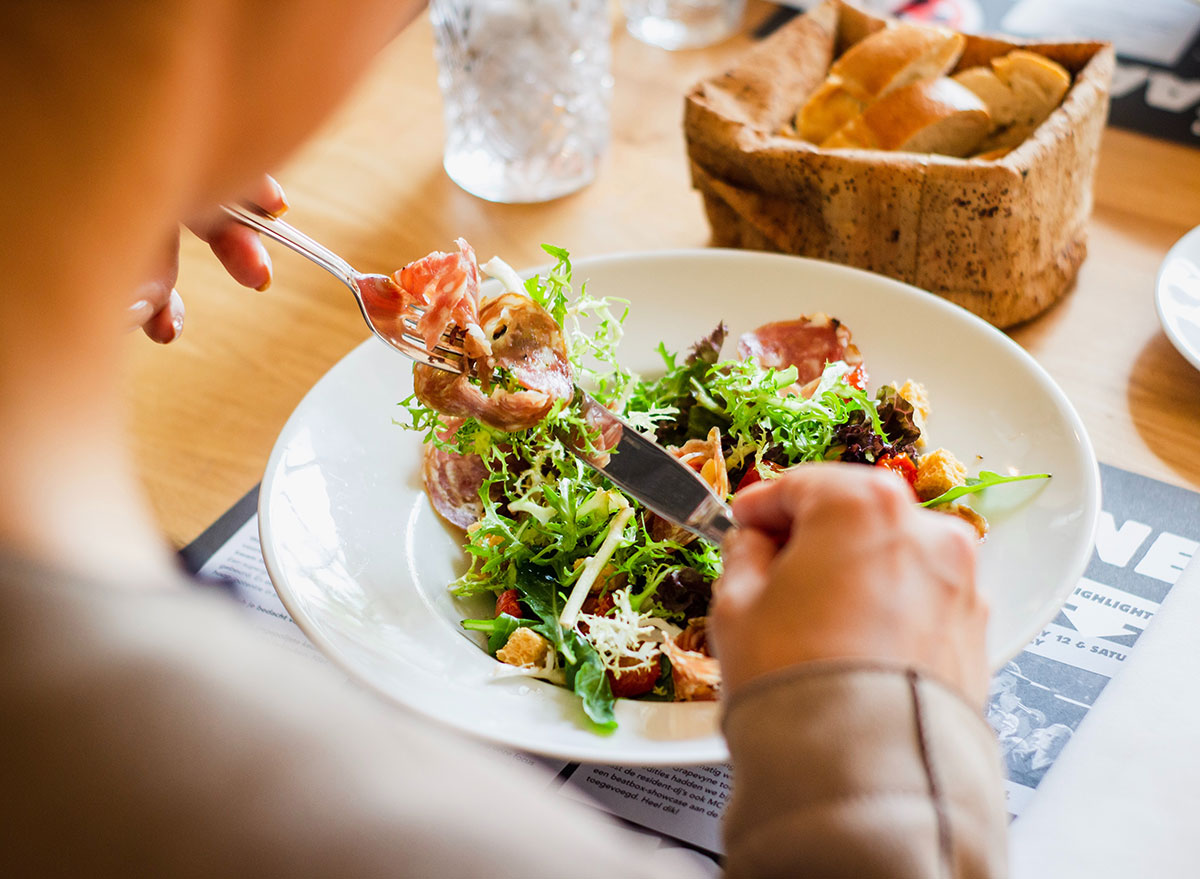
Intuitive Eating encourages people to focus on how their physical body feels in all circumstances. When are you really hungry to eat? Are you full and should you stop eating? What are the foods that actually make you physically feel your best long after you eat them?
This type of practice requires complete honesty from the eater, allowing that person to be fully honest with themselves. For example, what foods make you feel sluggish after? What are the foods that actually energize you?
"Prioritizing how your body feels, and deciding from there which foods to eat and in what portions, is a good way to go," says Rachel Paul PhD, RD from CollegeNutritionist.com. "Instead of thinking of adding healthy choices as 'restriction', think about new changes as creating a structure that you feel good about—with foods and meals you both like the taste of, and keep your body feeling its best."
However, while the practice of Intuitive Eating does encourage others to eat foods that feel good for their body, that hasn't stopped social media influencers from taking it a step further, promoting eating practices that may not be as healthy.
"I believe the book actually gets this right, but many Intuitive Eating promoters on social media tend to say things like 'if you have a craving you should always honor it'—and that actually isn't always true," says Paul.
Paul points out that just because you have an urge to do something doesn't always mean you have to do it. She recommends to her clients to breathe through the craving and see if their bodies really want it first. Even turning back to those questions can help: Am I actually hungry for this? Why am I eating this food? Will this food make me feel energized or sluggish?
Intuitive eating can reverse a dieting mindset.
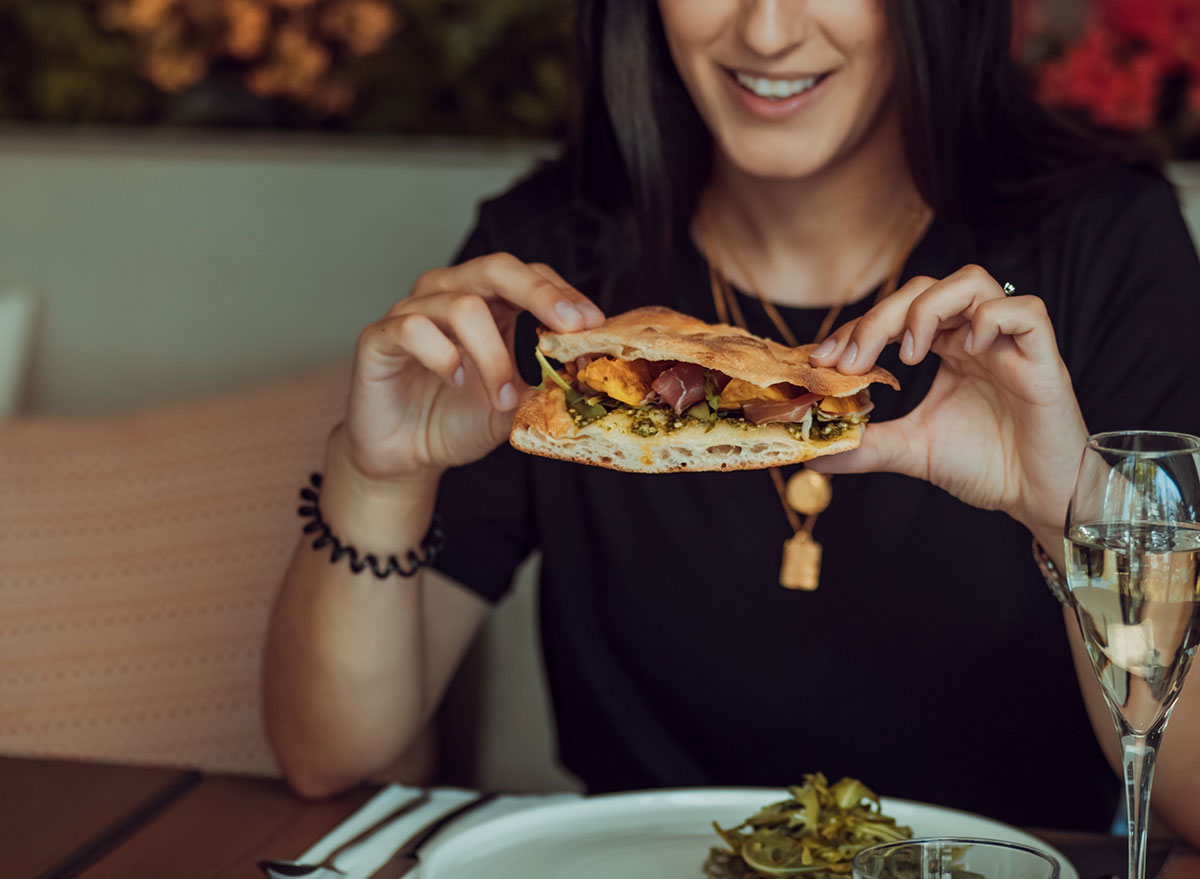
There is no concrete scientific evidence that shows dieting and food restriction actually work for weight loss long term. But that hasn't stopped many weight loss programs from promoting their products—and hasn't stopped customers from buying and believing in them. This type of restrictive dieting practice can lead to yo-yo dieting, causing chronic dieters to go from periods of serious restriction to overeating in order to compensate for the lack of calories. (Here are 10 Ways To Stop Yo-Yo Dieting)
The best way to lose weight is to stop dieting at all—even doctors say so. That's why the practice of Intuitive Eating has been massively successful for many people. It asks people to have respect for their body's physical needs in regards to food and teaches how to respect proper hunger and fullness cues.
If you're one who constantly gave into yo-yo dieting and restrictive eating practices, the thought of intuitively eating may seem intimidating and difficult. The best thing you can do is talk to a registered dietitian who can walk you through the process of getting started.
"I usually suggest working with a registered dietitian to come up with a meal plan based on your needs focused on timing and portion sizes of meals and once you have gotten comfortable with that, transitioning over to intuitive eating to add or take away from what you would have had planned based on your body's redeveloped signals," says Ricci-Lee Hotz, MS, RDN at A Taste of Health and Expert at Testing.com.
All in all, Intuitive Eating could potentially help you to lose weight. But weight loss isn't the main point of this particular way of eating healthy. Instead, Intuitive Eating is all about making peace with food and truly being honest about your body's physical needs.
